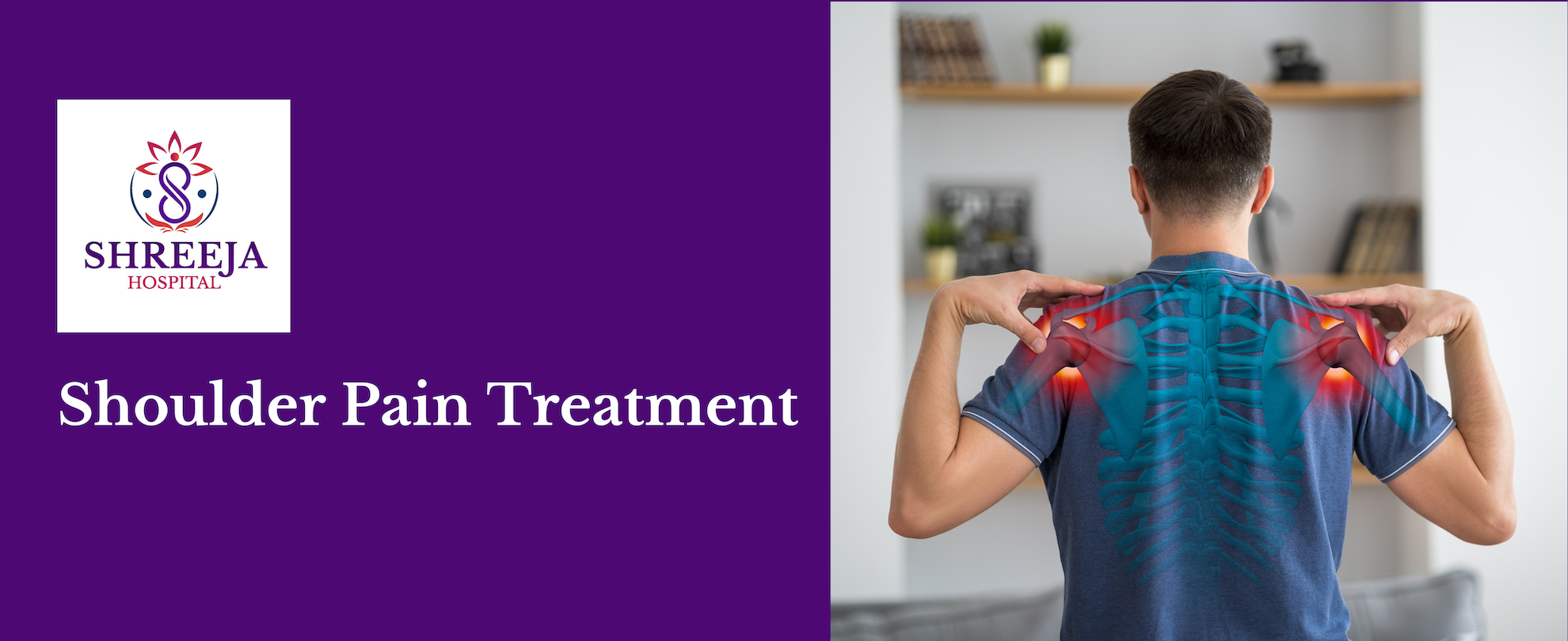
Shoulder Pain Treatment at Shreeja Hospital
Shreeja Hospital in Boduppal specializes in the treatment of shoulder pain, offering a range of advanced, non-surgical solutions tailored to individual patient needs.
Shoulder Pain Treatment Overview
Shoulder pain is a common issue that can arise from various conditions, significantly impacting daily life. At Shreeja Hospital, we focus on accurately diagnosing the underlying causes of shoulder pain and providing effective treatment options.
Common Causes of Shoulder Pain
- Rotator Cuff Injuries: Strains or tears in the muscles and tendons surrounding the shoulder joint.
- Arthritis: Osteoarthritis and rheumatoid arthritis can lead to pain and stiffness.
- Frozen Shoulder (Adhesive Capsulitis): Inflammation of the joint capsule that restricts movement.
- Bursitis: Inflammation of the bursa, causing pain during movement.
- Shoulder Fractures: Breaks due to injury or falls.
- Ligament Injuries: Damage to ligaments around the shoulder joint.
- Labral Tears: Injuries to the labrum that stabilize the shoulder joint.
- Impingement Syndrome: Pain caused by excessive rubbing of tendons against shoulder bones.
Symptoms
- Tenderness and warmth around the joint
- Inability to move the arm away from the body
- Sudden swelling or redness
- Weakness in the shoulder or upper arm
- Neck pain and headaches
- Nighttime pain or cramps
Immediate medical attention is necessary if shoulder pain is sudden and accompanied by dizziness or excessive sweating.
Diagnostic Procedures
To determine the cause of shoulder pain, Shreeja Hospital employs:
- Comprehensive physical examinations.
- Imaging tests such as X-rays, CT scans, and MRIs to visualize structural issues.
- Dynamic ultrasound imaging for detailed assessment of soft tissue injuries.
Treatment Options
Non-Surgical Approaches
- Physiotherapy: Tailored exercises to improve strength and flexibility, along with heat and cold therapy for symptom relief.
- Medications: Use of analgesics and anti-inflammatory drugs to manage pain and inflammation. Caution is advised for long-term use due to potential side effects.
-
Regenerative Medicine:
- Stem Cell Therapy: Injecting stem cells at the injury site to promote healing.
- Platelet-Rich Plasma (PRP) Therapy: Utilizing growth factors from blood to regenerate damaged tissues.
- Hydro Dissection: A procedure for frozen shoulder where saline is injected into the joint to reduce inflammation and improve mobility.
Surgical Options
In cases where non-surgical treatments are ineffective, surgical interventions may be considered:
- Arthroscopic Surgery: Minimally invasive procedures for diagnosing and treating various shoulder conditions.
- Shoulder Replacement Surgery: A more complex procedure reserved for severe cases.
